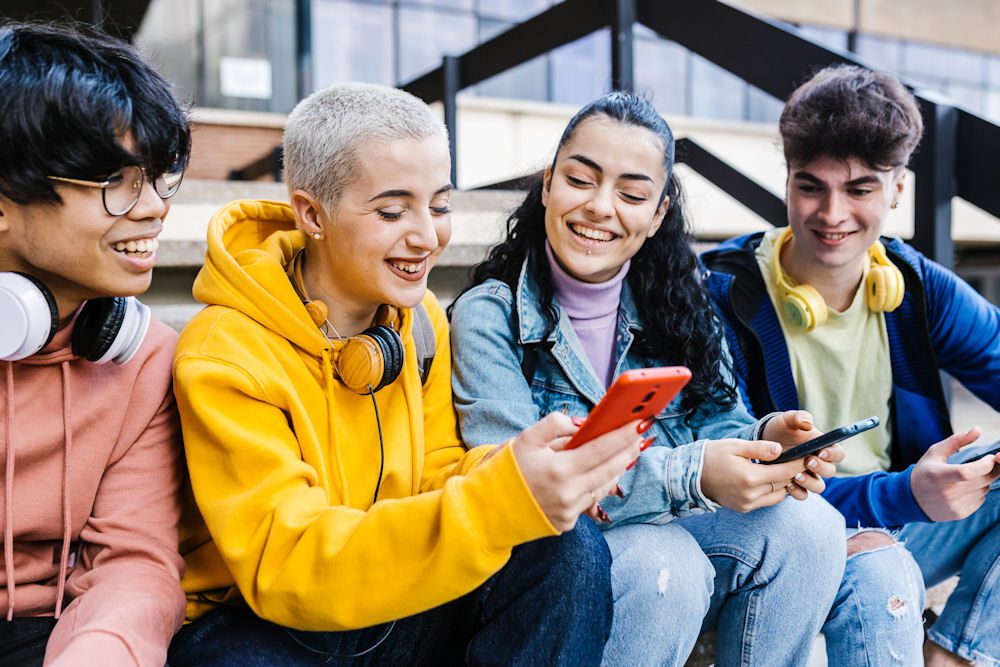
Have you noticed how influential social media is in your teen’s life? With social platforms taking up more and more of their time, it’s no wonder the digital world affects their behaviors and choices. As a parent, those influences – both good and bad – are impossible to ignore. One rising concern is the relationship between social media and recreational drug use. With relaxed marketing regulations online and the sheer amount of drug-related content, platforms like Instagram and Snapchat may encourage adolescent drug use more than we realize. Understanding this connection is key to keeping tabs on your teen’s digital life.
In this article, we will examine the data connecting social media and drug use among adolescents and young adults. Additionally, we will offer tips on how to start a conversation with your teen about developing healthy social media habits. Being informed and involved can help reduce the impact of potentially harmful content.
The Changing Landscape of Social Media
Social media is now a fundamental aspect of most teens’ lives. According to a 2024 study, a significant percentage of teens (93%) ages 13 to 17 actively use social media platforms daily. Although moderate social media use is acceptable, excessive use among teens has been associated with various mental health disorders. On average, individuals spend one hour and forty minutes per day browsing social media. While these digital spaces offer unique opportunities for connection and learning, they also come with potential drawbacks.
Spending too much time on social media can be tough on teens. Many find themselves feeling more anxious or depressed because of the pressure to maintain a perfect image, deal with cyberbullying, or live up to unrealistic standards. Plus, all that screen time can mess with their sleep, making those tough feelings even worse.
As the landscape of social media evolves, parents, teachers, and community leaders must keep a close eye on how it influences our young adolescents. We need to think about ways to lessen the negative impacts and boost the positive ones. This could mean teaching teens about digital literacy, encouraging them to form healthy habits online, and ensuring there are strong support systems in place for them. Just as guiding them away from most addictive drugs is important, teaching them how to use social media responsibly is crucial for their well-being.
The Influence of Social Media on Teen Drug Use

Social media greatly influences teens’ behaviors and decisions. As these young individuals navigate through their formative years, the impact of platforms like Instagram, Snapchat, and TikTok cannot be underestimated, particularly in risky behaviors such as drug abuse and binge drinking alcohol. Here’s a closer look at how social media and drugs affect teen behavior:
Teens today face enormous pressure to fit in on social media. The desire to gain likes, hearts, and shares can drive teens to engage in risky behaviors to seem “cool.” This includes using drugs or alcohol to appear more mature or rebellious. The fear of missing out (FOMO) also plays a role, with teens worried their peers are having more fun or exciting experiences with drugs or alcohol.
Social media exposes teens to images and videos of people using drugs and alcohol in a glamorized way. This normalization and even glorification of substance use can make it seem exciting, rebellious, or a rite of passage. According to studies, teens who view these images are more likely to use drugs and alcohol themselves.
Social media platforms allow alcohol and tobacco companies to directly market to teens. While companies claim to only target those of legal age, the reality is that teens still see these ads. Research shows exposure to alcohol marketing on social media leads to higher rates of underage drinking. These ads make substance use seem appealing and common among peers.
For some teens, social media use is linked to anxiety, depression, loneliness, and low self-esteem. To cope with these issues, some teens may turn to drugs or alcohol. Social media also provides a platform for teens to anonymously buy illegal drugs.
On a positive note, social media can also provide support networks for teens struggling with drug addiction. There are numerous support groups, recovery pages, and educational content that can help counteract the pressures and misinformation, offering a path to recovery and informed decision-making.
Rates Of Teen Social Media Use
Social media usage among teenagers in 2024 is soaring, with platforms like YouTube and TikTok leading the charge. A remarkable number of teens are actively engaging with social media daily this year.
Teen Social Media Usage Statistics for 2024:

- Over 93% of teens are using social media.
- With approximately 40 million adolescents in the USA, there are roughly 37 million teen social media users.
- Around 70% of teens and young adults in the US are grappling with social media addiction.
- On average, individuals spend 1 hour and 40 minutes per day on social media.
- 20% of teens are almost constantly on YouTube or TikTok.
- 70% of teens use YouTube daily.
- 58% of teens use TikTok daily.
The rise in screen time and social media addiction highlights the urgent need for strategies to promote healthier online habits and digital balance among teens. Addressing these challenges requires a collaborative effort to ensure that the digital landscape supports the positive development of young people.
Tips to Talk To Your Kids And Monitor Social Media Use
Encouraging secure social media practices among teenagers as a parent requires fostering open dialogue, providing guidance, and clearly defining limits. By following these tips and maintaining open communication with your kids, you can help them navigate the world of social media safely and responsibly.
Establish an open and non-judgmental line of communication with your children about their social media usage. Let them know they can talk to you about anything they see or experience online.
Set clear guidelines regarding when and how long they can use social media. Make sure they understand the importance of balance between online and offline activities.
Teach your kids about online safety, including the importance of privacy settings, not sharing personal information, and being cautious about who they interact with online.
Show good social media habits by practicing them yourself. Teach others to use social media responsibly and respectfully by your example.
Teach your kids to critically evaluate the content they see online, including questioning the credibility of information and being aware of the potential for misinformation or manipulation.
Use parental control tools or monitoring apps to keep track of your child’s social media activity. However, make sure to balance monitoring with trust and open communication, and respect their privacy to a certain extent.
Talk to your kids about the importance of treating others with kindness and respect online, and the consequences of cyberbullying or engaging in negative behavior.
Establish certain areas or times in the house where technology, including social media, is not allowed, such as during family meals or before bedtime.
Keep yourself updated about the latest social media platforms, trends, and potential risks so you can have informed conversations with your kids and adapt your monitoring strategies accordingly.
If you notice any concerning behavior or content on your child’s social media accounts, address it promptly and calmly. Use it as an opportunity for education and guidance rather than punishment.
We Provide Behavioral Healthcare To Adolescents
Northern Illinois Recovery is dedicated to providing adolescents with the support they need to overcome behavioral health challenges, including issues related to social media and drugs. Our specialized services are designed to address these complex issues head-on, offering personalized care and guidance every step of the way. If you or a young person you care about is struggling, don’t hesitate to reach out. Let’s work together to navigate these challenges and build a healthier, happier future. Contact us today to learn more about our comprehensive behavioral health services for adolescents.



